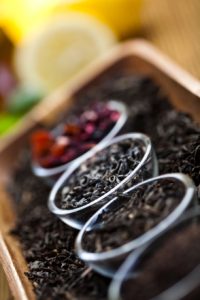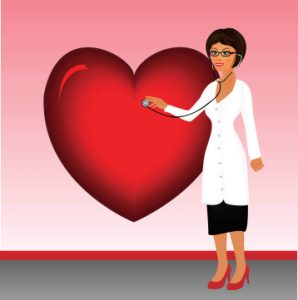AIHCP offers a Holistic and Integrative Health Care Certification to qualified professionals who seek to utilize the use of herbs and other complimentary and alternative practices of medicine in conjunction with Western Medicine. Through this certification, healthcare professionals who specialize in Holistic Nurses can give holistic health more publicity it needs. This is important because holistic health helps individuals take more personal control over their health. It helps them understand the inner dynamics of the body, how organs function, how systems interact and how herbal and alternative methods while working with Western medicine can grant greater well being.

Publicity to this is imperative. In the article, “Alternative medicine needs more publicity” by Sonali Whittle, the importance of more publicity to natural medicine is encouraged. She points out that with higher pharmaceutical prices, restrictions on certain medications, adverse side effects of certain medications and overall lack of sound guidance on general health, individuals need to be more aware of holistic health itself. She states,
“According to the Cleveland Clinic, Western medicine can be understood as the traditional health care that is received in the U.S. Whether a visit to urgent care due to a fever or a yearly wellness check, almost everyone in the U.S. has come in contact with Western medicine. The techniques are based on empirical scientific work, and thus, there is a major emphasis placed on Western medicine as the golden standard of care. Although Western medicine helps many, there should be alternative healthcare methods such as holistic, herbal and complementary medicine instead of letting people think that they do not have options beyond traditional Western treatments.”
“Alternative medicine needs more publicity” Whittle, Sonali. (2023). The Highlander
To review the entire article, please click here
Holistic Nurses and Holistic and Integrative Health Care Professionals can be important influences on making alternative and herbal medication more public to patients. Most, however, are not trained in these fields. Those in mental health and healthcare seem to adhere to Western only medications or procedures. While this may work for some, the importance of herbal remedies in prevention as well as helping overcome acute issues is very important. Individuals need to be aware but also guided. For instance, a person who is facing depression and is prescribed a SSRI, should never seek over the counter herbal remedies for depression such as St John Wort or Hypericum, or even 5-HSP, since these substances and herbs produce Serotonin. If already on an SSRI, the added Serotonin level can lead to a toxic increase for the body and mind. Hence, it is so important that whether facing diabetes, cholesterol, depression or any issue, that one consult healthcare professional to properly diagnose if a particular herb can co-exist with an existing pharmaceutical drug.
The benefits can be great and also free individuals over safe and regulated time from a particular drug for ADHD or OCD and allow one to have a more natural approach with the same results. The issue is knowing about it and also having someone trained to guide individuals in utilizing it. This is why the certification in Holistic Nursing for AIHCP is important to making public the benefits of alternative medicine and also providing the public with certified professionals to guide the patients through the process.
We will below quickly highlight benefits and downfalls of holistic medication. Bear in mind, we are looking at both, Western Medicine and Holistic Medicine being used complementary and under guidance of a healthcare professional
Benefits of Holistic Health
One can find less expensive ways to face minor issues such as OCD, ADHD, or even depression through the use of Holistic Medication or herbs. These less expensive routes include less need of prescriptions and also can supplement an existing prescription. Caution must be taken though with certain SRRI as not to double dose through an herb. This is why these less expensive remedies should be utilized through the guidance of a healthcare professional. While online blogs and resources are available from reputable sources such as Cleveland Clinic or WebMed, it is still important to consult health care professional before ever discontinuing a prescription or supplementing. For the most part, information can be found on many herbs, what they do, and which ones are complimentary with each other or with certain prescriptions and which one do not mix well.

In addition, Holistic Health introduces the person to a higher level of personal accountability for health. Individuals study and learn more about body systems, organ functions and how the herb helps heal the body or promote overall wellness. Individuals are then more likely to make better health decisions as they build a health blue print for themselves in regards to their mental and physical health.
Holistic herbs and methods are also preventative. If family history has diabetes, then certain herbs can be utilized to help protect the body prior to entering into diabetes. The same can be true for mood and mental health, ADHD, OCD, as well as depression. Many herbs also have preventative characteristics for cancer prevention, heart health, and so forth. Prevention is an important key in health. Holistic health is not reactive but proactive. It looks for harmony in all the systems of the body instead of a more narrow look found in Western Medicine. Holistic Health looks to prevent, prepare and coordinate between body systems for overall health in mind, body and spirit.
Finally, there are also many less side effects with herb than pharmaceutical drugs. While certain herbs can cross each other out or cause damage if used with a drug or different herb, if one is able to work with a healthcare professional with education in holistic health, one will be able to create a far superior health plan for overall health without side effects of pharmaceutical drugs.
Downfalls of Holistic Health
This title is slightly misleading because there are truly no downfalls to Holistic Health, but when individuals misuse it, play doctor, or mix things that should not be mixed, then downfalls can emerge.
Holistic Health is empowering if studied and under care of a professional but it can become a dangerous endeavor for individuals who play doctor or think they know best. These individuals do not understand the universal nature of holistic health that is more preventative in nature. In some cases, these individuals may stop taking a prescription which may cause withdraws, or even worst, cease treating the issue, while supplementing with another drug. An example may be someone who immediately goes off a Statin for cholesterol and replaces it with an herbal remedy. This can be extremely dangerous. As stated earlier, it can also be dangerous if someone starts to take St John Wort with SSRIs. Hence it is important to be empowered in health but also educated and follow the advice of a healthcare provider in regards in discontinuing a medication or supplementing one with an herb. It is important to also note, some Western Drugs are needed for more severe or acute situations. Drugs for cancer care may be more powerful for acute diseases despite side effects. In addition, herbs that may ease minor OCD or ADHD, may need the stronger pharmaceutical for severe and extreme cases of mental health, despite side effects. Again, playing doctor with Holistic Medicine without knowledge and a healthcare expert can be dangerous.
In addition, it is important to remember that many Holistic medications are not placed under the tighter scrutiny of the empirical verification and approved case studies. Many are known to work and do, but many are not pressed under the same case study regulations found in pharmaceuticals. They are more known through time and culture to provide certain advantages. There has been more work and progress to understand the nature of the herb, its make up and ability to proceed with some fact, but again herbs are not regulated. This again does not mean they are not beneficial and work, but it does point to some lack of in-depth study. With more publicity, the more scientific data can be gathered in promoting the benefits of Holistic medicine.
Conclusion
Holistic mediation needs to be made more public, but within a restrained and protective way. Individuals must know what Holistic offers and what it cannot offer. Individuals must understand how to supplement or not supplement with pharmaceuticals. This involves an educated and trained base of healthcare professionals who do not only see medication under a Western prism, but also under a Holistic one. Holistic Nurses can better guide individuals and educate individuals through the process of utilizing alternative and holistic medications to better their lives.

Please also review AIHCP’s Holistic and Integrative Healthcare Specialist Program. Also known as Holistic Nursing, the program is online and independent study and offers a four year certification in Holistic Nurses.
Additional Resources
“When medicines and supplements don’t mix”. (2020). Mayo Clinic. Access here
“6 Tips: How Herbs Can Interact With Medicines”. National Center for Complementary and Integrative Health. NIH. Access here
“A holistic approach to integrative medicine”. (2023). Mayo Clinic. Access here
“MERGING conventional and complementary medicine in a clinic department – a theoretical model and practical recommendations”. Perard, M. et. al. (2015). National Library of Medicine. Access here
